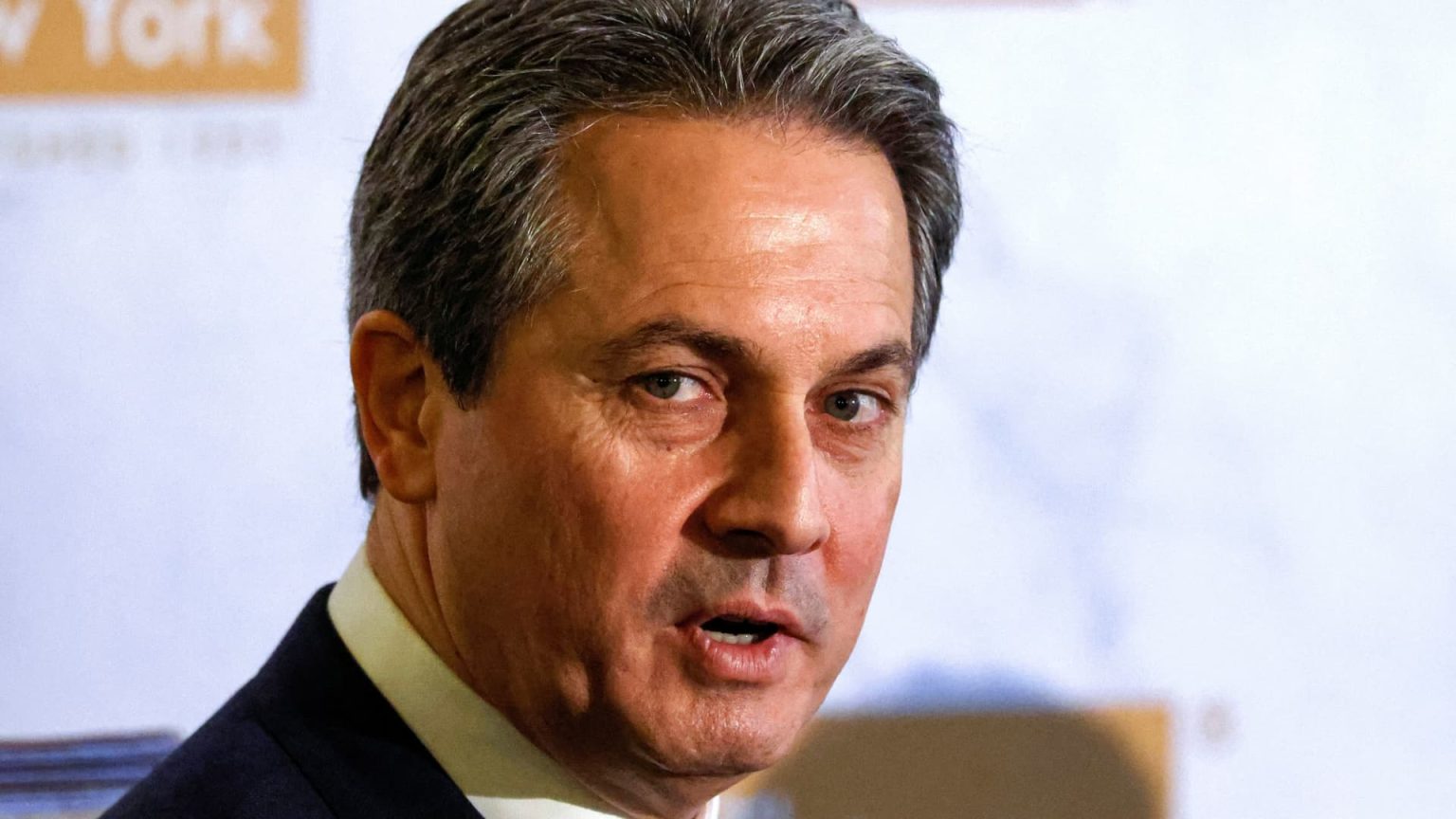In a recent address to the National Association for Business Economics, Alberto Musalem, President and CEO of the Federal Reserve Bank of St. Louis, expressed growing concerns about rising inflation risks. Musalem highlighted a shift in inflation expectations among consumers and businesses, which could lead to significant economic repercussions. As the Federal Reserve navigates these challenges, the central bank’s actions regarding interest rates remain a critical point of interest for investors and policymakers alike.
| Article Subheadings |
|---|
| 1) Concerns About Inflation Risks |
| 2) Insights from Consumer Confidence Index |
| 3) The Federal Reserve’s Current Stance |
| 4) Impact of Tariffs on Inflation |
| 5) Looking Ahead: The Road to Rate Decisions |
Concerns About Inflation Risks
Speaking at the National Association for Business Economics conference, Alberto Musalem outlined his growing unease regarding inflation risks. He indicated that the current trajectory for inflation could threaten the Federal Reserve’s goal of maintaining price stability. Musalem emphasized that while his baseline forecast suggests inflation could gradually drift towards the 2% target, the recent uptick in inflation expectations complicates this outlook.
According to Musalem, “near-term inflation expectations have risen substantially over the last few weeks,” which underscores a heightened sensitivity among businesses and households to inflation signals. As inflation expectations fluctuate, they create a feedback loop that could influence actual inflation, thereby solidifying Musalem’s concerns over the current economic climate.
Insights from Consumer Confidence Index
In support of his cautionary stance, Musalem referenced the February reading of The Conference Board’s consumer confidence index, which noted the largest month-over-month decline since August 2021. This decline reflects changing consumer perceptions as inflation expectations rise, raising alarms about spending and overall economic strength.
The Institute for Supply Management’s manufacturing Purchasing Managers’ Index (PMI) has also reported sharp increases in prices, suggesting that inflation pressures are mounting in various sectors of the economy. This dual combination of consumer confidence slipping and rising prices indicates the need for a vigilant approach as part of economic policy considerations.
The Federal Reserve’s Current Stance
The Federal Reserve has thus far maintained its current interest rate range of 4.25% to 4.5%. Despite initial investor expectations for a potential rate reduction in 2025, the Fed’s governing body decided against such adjustments during its January meeting. This decision was rooted in ongoing concerns about inflation, which the Fed described as “somewhat elevated.”
The CME Group’s FedWatch tool has illustrated a strong market expectation—about 93%—that interest rates will hold steady during the upcoming March meeting. This reflects a broader apprehension influenced by the economic environment shaped by rising inflation expectations, which move closer to the Fed’s internal assessments of economic health.
Impact of Tariffs on Inflation
Compounding these inflationary risks, market analysts are now closely monitoring trade dynamics, particularly the implications of U.S. tariffs on imports from China, Mexico, and Canada. These tariffs are looming concerns for many investors, who fear that the additional costs will contribute to price increases across various sectors, particularly consumer goods. Musalem articulated these concerns, indicating that if tariffs lead to higher prices, they would challenge the Fed’s capacity to lower interest rates as a response to sluggish economic growth.
The overall interplay between tariffs, inflation, and consumer confidence city raises comprehensive challenges for policymakers, as they must evaluate the metrics that impact decisions on interest rates. Monitoring these developments will be crucial for the Fed in crafting its near-term strategies moving forward.
Looking Ahead: The Road to Rate Decisions
As financial markets digest the implications of Musalem’s statements and the larger economic picture, all eyes will be on the upcoming Federal Reserve meetings. The balance between controlling inflation and fostering economic growth is delicate, and the Fed must navigate this tightrope with care. Investors and analysts alike are eager for insights into the central bank’s future direction, especially in light of the shifting economic indicators and increased inflation expectations.
Moreover, Musalem’s observations suggest that inflation management will remain a central theme in economic policymaking for the foreseeable future. The potential for escalating inflation risks becomes more pronounced in the context of fluctuating consumer sentiments and external economic pressures. As such, clear communication from Federal Reserve officials will be crucial in maintaining market confidence and guiding public understanding of monetary policy measures.
| No. | Key Points |
|---|---|
| 1 | Alberto Musalem emphasizes rising inflation risks in his economic outlook. |
| 2 | The Conference Board’s consumer confidence index indicates a significant drop as inflation expectations rise. |
| 3 | The Federal Reserve maintains current interest rates despite market expectations for a reduction. |
| 4 | U.S. tariffs on imports are raising additional concerns about inflationary pressures. |
| 5 | The Fed faces challenges in navigating inflation management and economic growth strategies. |
Summary
In summary, the recent statements made by Alberto Musalem regarding inflation risks highlight a critical period for the U.S. economy as stakeholders grapple with new challenges. The uptick in inflation expectations, declining consumer confidence, and external trade pressures from tariffs paint a complex picture of the economic landscape. As the Federal Reserve prepares for its upcoming meetings, it becomes increasingly vital to monitor these developments and their impact on monetary policy, economic growth, and consumer sentiment.
Frequently Asked Questions
Question: What did Musalem say about inflation expectations?
Musalem expressed concern that near-term inflation expectations have risen significantly, indicating that businesses and households are becoming more sensitive to inflation signals.
Question: How is consumer confidence affecting the economy?
The recent decline in the consumer confidence index reflects growing anxiety about inflation, which could lead to reduced spending and slower economic growth.
Question: What are the implications of the current interest rate policy by the Fed?
The Federal Reserve’s decision to maintain current interest rates aims to balance inflation control with supporting economic growth amidst uncertainties in the market.


